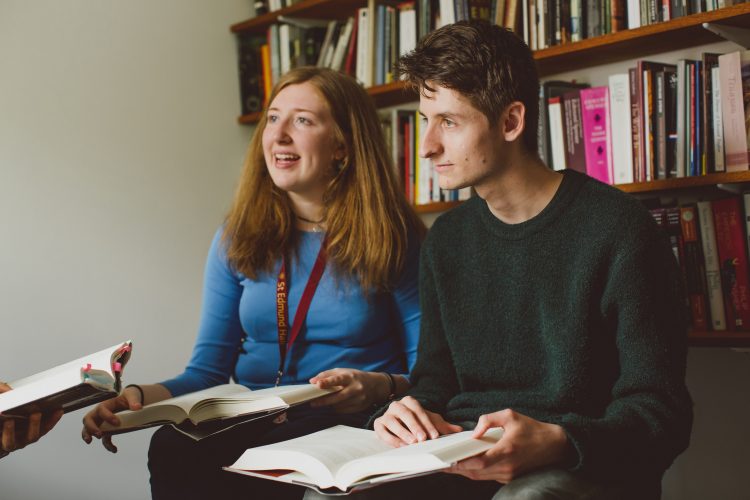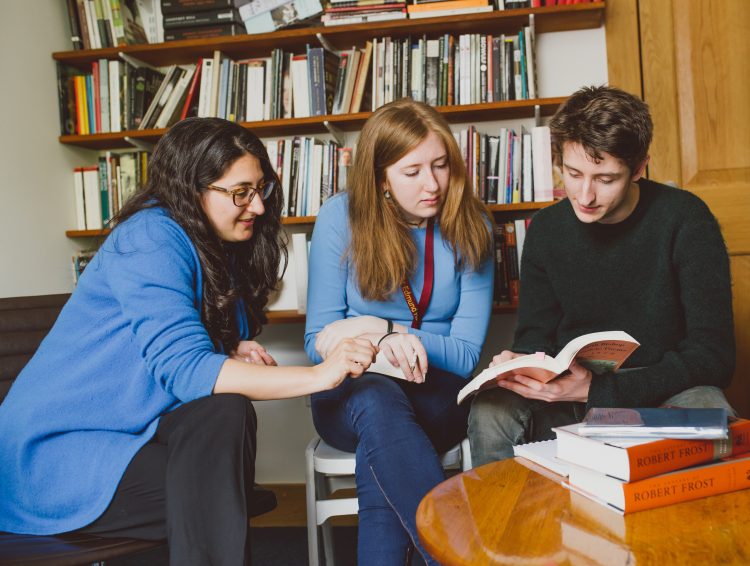Jenyth Evans
Non-Stipendiary Junior Research Fellow in English
Jenyth is a non-stipendiary Junior Research Fellow in English at St Edmund Hall and a Departmental Lecturer in Medieval Irish Language and Literature. She read Classics as an undergraduate at Jesus College, Oxford, from 2015 to 2019. She then completed a Masters in Medieval Studies in 2020, also at Jesus College, before moving to St Edmund Hall for her DPhil in English from 2020 to 2024.
Jenyth’s DPhil research examined two pseudohistorical texts in tandem – the Irish Lebor Gabála Érenn (“The book of the taking of Ireland”, earliest version composed c. 1025) and Geoffrey of Monmouth’s De Gestis Britonum (“On the deeds of the Britons”, first circulated c. 1123–1139). She argued in her thesis that these texts were often read together for centuries after their original composition, and that understanding this offers new readings of works written by, for example, Gerald of Wales, Edmund Spenser, and the Welsh author Theophilus Evans. Her thesis also examined how unbelievable material within both texts was assessed, criticised, or defended by various authors from the medieval period to the modern.
Stemming from this research, her next project will examine frauds and forgeries created in Celtic-speaking contexts. She is also interested in classical reception in the medieval period.
Jenyth teaches on various aspects of medieval Irish and Welsh literature and language. She runs an introductory course to the Old Irish language, available to English undergraduate students as a special subject option, or to graduate students with relevant research interests in medieval Irish language, history, or literature.
Evans, Jenyth H. “Patterns of Conquest, Kingship and Conflict. Sallustian Intertext in Geoffrey of Monmouth’s De Gestis Britonum.” North American Journal of Celtic Studies 8.2 (2024): 131–155. https://muse.jhu.edu/article/941026
Where next?

English Language and Literature


Jenyth Evans
- Non-Stipendiary Junior Research Fellow in English
- Departmental Lecturer in Medieval Irish Language and Literature